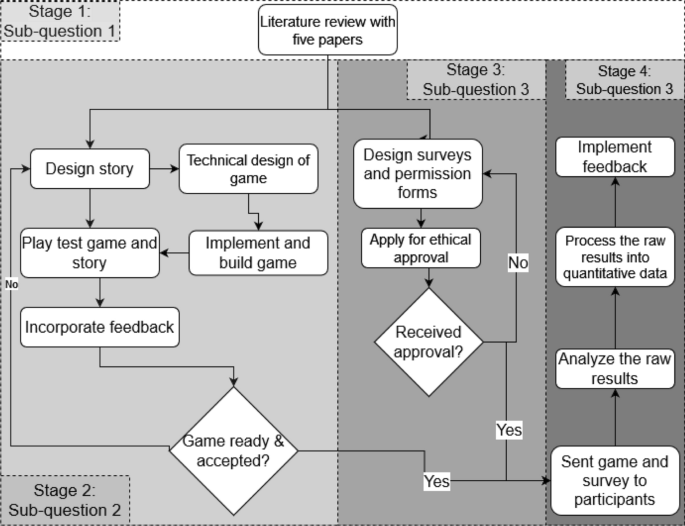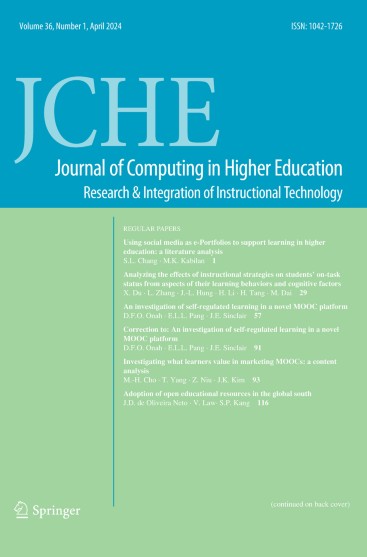A story-driven gamified education on USB-based attack
IF 4.9
2区 教育学
Q1 EDUCATION & EDUCATIONAL RESEARCH
引用次数: 0
Abstract
Abstract In recent years, gamification has seen a rise in usage for cyber-security training, with some of the most used elements being story and narrative. Yet there seems to be a lack of research on story-based gamification as well as how this type of gamification affects a training’s effectiveness. The goal of this study was to test the effectiveness of story-driven gamification in the prevention of USB-based attacks among students. To do this a story-driven gamified training was designed and deployed among students. It was found that story-elements were perceived to have a positive impact on the effectiveness of gamification. Testing the game showed that adding elements such as a guide and introducing characters caused the game to be more engaging and participants to learn more. Even to the extent that it was stated to be better than other gamification attempts lacking a focus on narrative. Because this research focuses on just story-elements and not other often used gamification elements such as rewards and leaderboards, it creates a clear image of how they should be used. It aids the design of a gamified training by showing what questions need to be answered to make story-elements work as effectively as possible towards the goal of the training. This also provides a foothold for future frameworks that could be made in regard to the usage of story-elements in gamification and education. During the research, there were also some questions raised that could be researched further such as a difference in results between participants with different study backgrounds.

基于usb的攻击的故事驱动的游戏化教育
近年来,游戏化在网络安全培训中的应用越来越多,其中一些最常用的元素是故事和叙事。然而,似乎缺乏关于基于故事的游戏化以及这种游戏化如何影响培训效果的研究。本研究的目的是测试故事驱动的游戏化在预防学生usb攻击方面的有效性。为了做到这一点,我们设计了一个故事驱动的游戏化训练,并在学生中展开。研究发现,故事元素被认为对游戏化的有效性有积极影响。游戏测试表明,添加指南和角色介绍等元素可以提高游戏的吸引力,让玩家学到更多东西。甚至在某种程度上,它被认为比其他缺乏叙事的游戏化尝试要好。因为这项研究只关注故事元素,而不是其他经常使用的游戏化元素,如奖励和排行榜,所以它创造了一个关于如何使用它们的清晰图像。它通过显示需要回答哪些问题才能使故事元素尽可能有效地实现培训目标,从而帮助游戏化培训的设计。这也为在游戏化和教育中使用故事元素的未来框架提供了一个立足点。在研究过程中,也提出了一些可以进一步研究的问题,例如不同研究背景的参与者之间的结果差异。
本文章由计算机程序翻译,如有差异,请以英文原文为准。
求助全文
约1分钟内获得全文
求助全文
来源期刊

Journal of Computing in Higher Education
EDUCATION & EDUCATIONAL RESEARCH-
CiteScore
15.10
自引率
3.60%
发文量
40
期刊介绍:
Journal of Computing in Higher Education (JCHE) contributes to our understanding of the design, development, and implementation of instructional processes and technologies in higher education. JCHE publishes original research, literature reviews, implementation and evaluation studies, and theoretical, conceptual, and policy papers that provide perspectives on instructional technology’s role in improving access, affordability, and outcomes of postsecondary education. Priority is given to well-documented original papers that demonstrate a strong grounding in learning theory and/or rigorous educational research design.
 求助内容:
求助内容: 应助结果提醒方式:
应助结果提醒方式:


